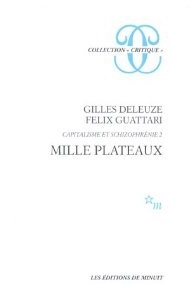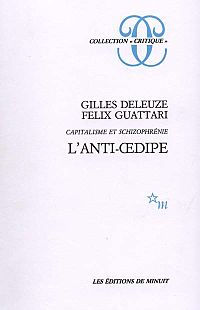Post-structuralism is a philosophical movement that questions the objectivity or stability of the various interpretive structures that are posited by structuralism and considers them to be constituted by broader systems of power. Although post-structuralists all present different critiques of structuralism, common themes among them include the rejection of the self-sufficiency of structuralism, as well as an interrogation of the binary oppositions that constitute its structures. Accordingly, post-structuralism discards the idea of interpreting media within pre-established, socially constructed structures.

Rhetoric is the art of persuasion. It is one of the three ancient arts of discourse (trivium) along with grammar and logic/dialectic. As an academic discipline within the humanities, rhetoric aims to study the techniques that speakers or writers use to inform, persuade, and motivate their audiences. Rhetoric also provides heuristics for understanding, discovering, and developing arguments for particular situations.
Genre is any style or form of communication in any mode with socially agreed-upon conventions developed over time. In popular usage, it normally describes a category of literature, music, or other forms of art or entertainment, based on some set of stylistic criteria. Often, works fit into multiple genres by way of borrowing and recombining these conventions. Stand-alone texts, works, or pieces of communication may have individual styles, but genres are amalgams of these texts based on agreed-upon or socially inferred conventions. Some genres may have rigid, strictly adhered-to guidelines, while others may show great flexibility. The proper use of a specific genre is important for a successful transfer of information (media-adequacy).

Giorgio Agamben is an Italian philosopher best known for his work investigating the concepts of the state of exception, form-of-life and homo sacer. The concept of biopolitics informs many of his writings.

The Rape of Lucrece (1594) is a narrative poem by William Shakespeare about the legendary Roman noblewoman Lucretia. In his previous narrative poem, Venus and Adonis (1593), Shakespeare had included a dedicatory letter to his patron, the Earl of Southampton, in which he promised to compose a "graver labour". Accordingly, The Rape of Lucrece has a serious tone throughout.

Metahistory: The Historical Imagination in Nineteenth-century Europe is a work of historiography by Hayden White first published in 1973. On the second page of his introduction, White stated:
My own analysis of the deep structure of the historical imagination of Nineteenth century Europe is intended to provide a new perspective on the current debate over the nature and function of historical knowledge.

A Thousand Plateaus: Capitalism and Schizophrenia is a 1980 book by the French philosopher Gilles Deleuze and the French psychoanalyst Félix Guattari. It is the second and final volume of their collaborative work Capitalism and Schizophrenia. While the first volume, Anti-Oedipus (1972), was a critique of contemporary uses of psychoanalysis and Marxism, A Thousand Plateaus was developed as an experimental work of philosophy covering a far wider range of topics, serving as a "positive exercise" in what Deleuze and Guattari refer to as rhizomatic thought.

Anti-Oedipus: Capitalism and Schizophrenia is a 1972 book by French authors Gilles Deleuze and Félix Guattari, the former a philosopher and the latter a psychoanalyst. It is the first volume of their collaborative work Capitalism and Schizophrenia, the second being A Thousand Plateaus (1980).

Digital rhetoric is communication that exists in the digital sphere. It can be expressed in many different forms, including text, images, videos, and software. Due to the increasingly mediated nature of contemporary society, distinctions between digital and non-digital environments are less clear. This has expanded the scope of digital rhetoric to account for the increased fluidity with which humans interact with technology.
A writing process is a set of mental and physical steps that someone takes to create any type of text. Almost always, these activities require inscription equipment, either digital or physical: chisels, pencils, brushes, chalk, dyes, keyboards, touchscreens, etc.; each of these tools has unique affordances that influence writers' workflows. Writing processes are very individualized and task-specific; they frequently incorporate activities such as talking, drawing, reading, browsing, and other activities that are not typically associated with writing.

Rhetoric of science is a body of scholarly literature exploring the notion that the practice of science is a rhetorical activity. It emerged after a number of similarly oriented topics of research and discussion during the late 20th century, including the sociology of scientific knowledge, history of science, and philosophy of science, but it is practiced most typically by rhetoricians in academic departments of English, speech, and communication.
James A. Berlin was an American scholar, professor, writer, and theorist in the field of composition studies, renowned for his contributions to the history of rhetoric and composition theory.

Cinema 1: The Movement Image (1983) is the first of two books on cinema by the philosopher Gilles Deleuze, the second being Cinema 2: The Time Image (1985). Together Cinema 1 and Cinema 2 have become known as the Cinema books, the two volumes both complementary and interdependent. In these books the author combines philosophy and cinema, explaining in the preface to the French edition of Cinema 1 that "[t]his study is not a history of cinema. It is a taxonomy, an attempt at the classifications of images and signs"; and that the "first volume has to content itself with […] only one part of the classification". To make this division between the movement-image and the time-image Deleuze draws upon the work of the French philosopher Henri Bergson's theory of matter (movement) and mind (time).
Internet Invention is a 2003 book by Gregory Ulmer. The book describes Ulmer's definition of "electracy" and leads readers through to make more activities that ask them to examine their interactions with four discourses, which Ulmer labels career, family, entertainment, and community.

A rhetorical situation is an event that consists of an issue, an audience, and a set of constraints. A rhetorical situation arises from a given context or exigence. An article by Lloyd Bitzer introduced the model of the rhetorical situation in 1968, which was later challenged and modified by Richard E. Vatz (1973) and Scott Consigny (1974). More recent scholarship has further redefined the model to include more expansive views of rhetorical operations and ecologies.

In classical rhetoric, figures of speech are classified as one of the four fundamental rhetorical operations or quadripartita ratio: addition (adiectio), omission (detractio), permutation (immutatio) and transposition (transmutatio).
Diane Davis is a post-structuralist rhetorician and professor of Rhetoric and Writing, English, and Communication Studies at the University of Texas at Austin. She was the Director of the Digital Writing and Research Lab at UT from 2009 to 2017, and is now the chair of the Department of Rhetoric and Writing. She holds the Kenneth Burke Chair of Rhetoric and Philosophy at the European Graduate School in Saas-Fee, Switzerland, where she teaches intensive summer seminars on Jacques Derrida and Emmanuel Levinas.

Theories of rhetoric and composition pedagogy encompass a wide range of interdisciplinary fields centered on the instruction of writing. Noteworthy to the discipline is the influence of classical Ancient Greece and its treatment of rhetoric as a persuasive tool. Derived from the Greek work for public speaking, rhetoric's original concern dealt primarily with the spoken word. In the treatise De Inventione, Cicero identifies five Canons of the field of rhetoric: invention, arrangement, style, memory, and delivery. Since its inception in the spoken word, theories of rhetoric and composition have focused primarily on writing

The Digital Writing and Research Lab (DWRL) is a research lab at The University of Texas at Austin, United States, dedicated to the identification and promotion of twenty-first-century literacies. These literacies range from navigating online newsfeeds and participating in social networking sites to composing multimedia texts that require producing, sampling, and/or remixing media content.

Feminist rhetoric emphasizes the narratives of all demographics, including women and other marginalized groups, into the consideration or practice of rhetoric. Feminist rhetoric does not focus exclusively on the rhetoric of women or feminists but instead prioritizes the feminist principles of inclusivity, community, and equality over the classic, patriarchal model of persuasion that ultimately separates people from their own experience. Seen as the act of producing or the study of feminist discourses, feminist rhetoric emphasizes and supports the lived experiences and histories of all human beings in all manner of experiences. It also redefines traditional delivery sites to include non-traditional locations such as demonstrations, letter writing, and digital processes, and alternative practices such as rhetorical listening and productive silence. In her book, Rhetorical Feminism and This Thing Called Hope (2018), Cheryl Glenn describes rhetorical feminism as, "a set of tactics that multiplies rhetorical opportunities in terms of who counts as a rhetor, who can inhabit an audience, and what those audiences can do." Rhetorical feminism is a strategy that counters traditional forms of rhetoric, favoring dialogue over monologue and seeking to redefine the way audiences view rhetorical appeals.